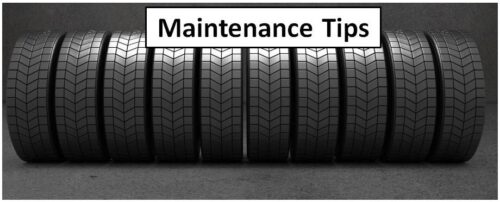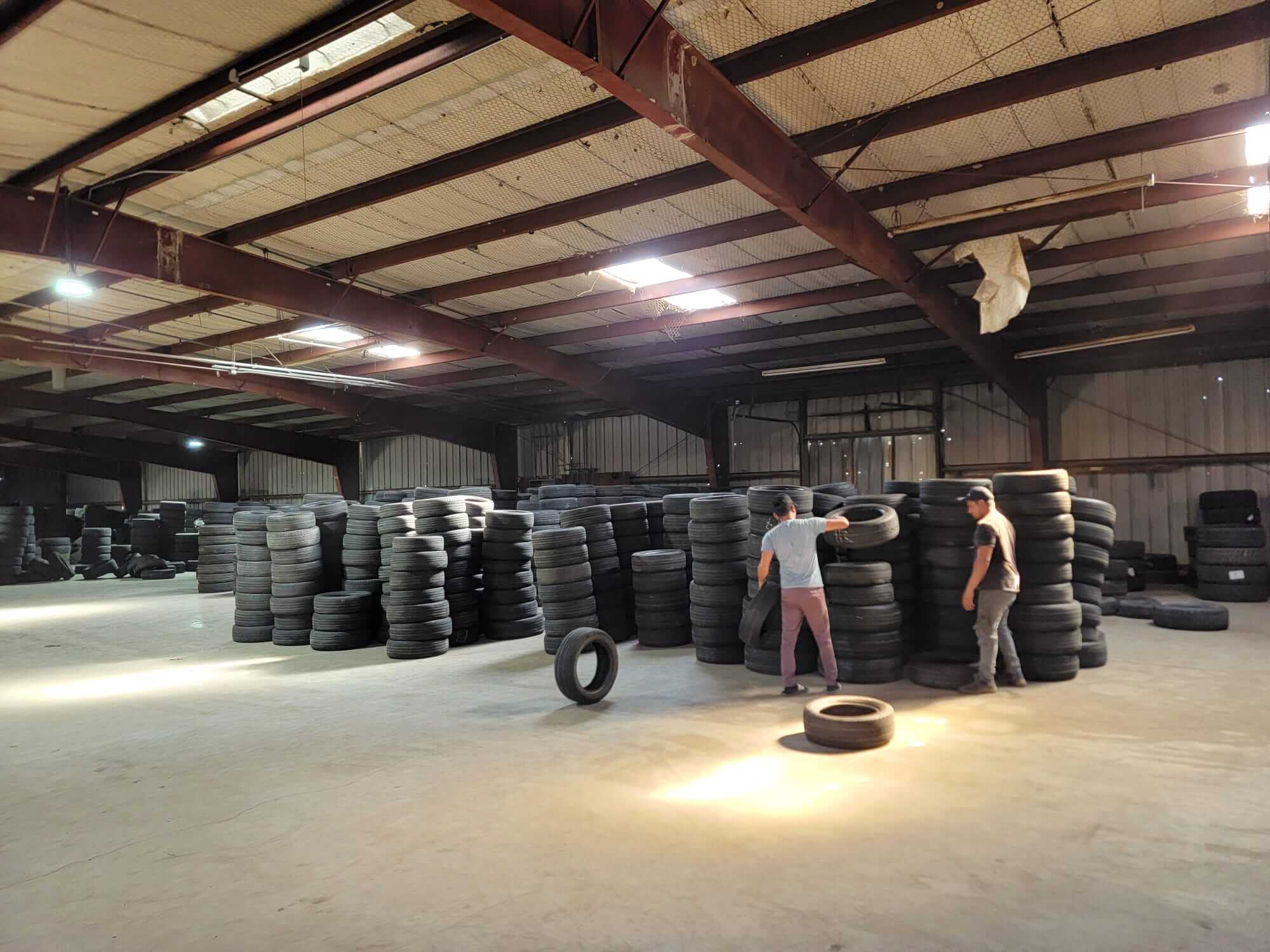Your tires are the foundation of your vehicle’s safety and performance, and whether you choose new or used tires, proper tires maintenance is key to getting the most out of them. While tires naturally wear out over time, good tire care can extend their lifespan, saving you money and ensuring safer driving.

At Forest Lane Tires, located at 9501 Forest Lane, Dallas, Texas 75243, we specialize in selling high quality new and used tires to fit any vehicle and budget. Although we don’t provide tire services, we know how important it is for drivers to maintain their tires correctly to ensure longevity and safety. That’s why we’ve compiled these essential tire maintenance tips that will help you maximize the life of your tires.
1. Regularly Check Tire Pressure
One of the simplest yet most important aspects of tire maintenance is maintaining the correct tire pressure. Improperly inflated tires can lead to uneven wear, reduce fuel efficiency, and increase the risk of tire damage. Underinflated tires wear down faster along the edges, while overinflated tires experience greater wear in the center.
Here’s why checking tire pressure is essential:
- Improve Tire Longevity: Proper tire pressure ensures that your tires wear evenly, extending their lifespan.
- Enhance Safety: Correctly inflated tires maintain better contact with the road, improving your vehicle’s handling and braking performance.
- Better Fuel Economy: Tires at the correct pressure create less rolling resistance, leading to improved gas mileage.
How to Check Tire Pressure:
Use a tire pressure gauge to check all four tires monthly, or before long trips. Tire pressure should be checked when the tires are “cold,” or before you’ve driven your car for more than a few miles.
Refer to your vehicle’s owner’s manual or the sticker on the inside of the driver’s door for the recommended tire pressure.
2. Rotate Your Tires to Prevent Uneven Wear
Rotating your tires regularly is a vital step to ensuring even wear. Tires that stay in the same position on the vehicle for too long can develop uneven tread wear, especially for front tires, which tend to wear faster due to steering and braking forces.
Why Rotate Your Tires?
- Extend Tire Life: By rotating your tires, you ensure that all four tires wear evenly, which can extend their overall life.
- Improve Handling: Even tread wear means better traction and handling, leading to a safer driving experience.
- Prevent Uneven Wear Patterns: Without rotation, some tires may wear out much faster than others, resulting in the need for more frequent tire replacements.
How Often Should You Rotate Tires?
Ideally, tires should be rotated every 5,000 to 7,500 miles or as recommended by your vehicle’s manufacturer. This is especially important for used tires to ensure they last as long as possible.
3. Monitor Tread Depth for Safe Driving
Tread depth is crucial to your tire’s performance, particularly in wet or slippery conditions. Adequate tread depth allows your tires to maintain good traction, prevent hydroplaning, and ensure proper braking distance. Worn tread reduces grip, making it harder to stop and increasing the risk of accidents.
Here’s why checking tread depth matters:
- Safety in All Conditions: Tires with sufficient tread maintain better control in wet, dry, or slippery conditions.
- Shorter Stopping Distances: Deeper tread allows for better braking performance, which is essential for road safety.
- Better Handling: Adequate tread depth improves your car’s stability and cornering ability.
How to Check Tread Depth:
- Use the penny test: Insert a penny into the tread groove with Lincoln’s head upside down. If you can see the top of Lincoln’s head, the tread is too worn, and it’s time to replace your tires.
New tires typically have a tread depth of 10/32 to 11/32 of an inch, while used tires may have less. You should replace tires when tread depth reaches 2/32 of an inch, though many experts recommend replacing them at 4/32 of an inch for optimal safety.
If you’re unsure about the tread depth on your used tires, visit us at Forest Lane Tires, and we’ll help you find replacements that meet your safety needs.
5. Inspect Your Tires for Damage
Routine inspections are critical for spotting any signs of damage that could compromise the safety of your tires. Whether you’re using new or used tires, checking them for damage can help you catch problems early and prevent costly issues down the road.
What to Look for During Inspections:
- Cracks and Bulges: Check the sidewalls for any cracks, cuts, or bulges, which could indicate structural damage or weakening.
- Punctures or Embedded Objects: Look for nails, screws, or other objects that could have punctured the tire. Slow leaks can be caused by small punctures that are not immediately obvious.
- Uneven Wear: Uneven wear on the tires can indicate alignment issues, improper inflation, or suspension problems.
We at Forest Lane Tires can guide you in choosing durable new or used tires, but regular inspection is key to ensuring that they remain in top condition.
6. Balance Your Tires to Avoid Vibrations
Keeping your tires balanced is another important step in maintaining their lifespan. Over time, tires can become unbalanced due to everyday wear or hitting potholes. Unbalanced tires cause vibrations, uneven tread wear, and can make your car harder to control.
Here’s why balancing matters:
- Smoother Ride: Balanced tires reduce vibrations and provide a smoother driving experience.
- Even Tread Wear: Properly balanced tires wear evenly, which helps them last longer.
- Better Performance: Balanced tires improve handling and fuel efficiency, reducing wear and tear on other vehicle components.
If you notice your vehicle shaking or vibrating at certain speeds, it may be time to have your tires balanced. It’s especially important to balance newly purchased used tires to ensure a smooth ride.
7. Replace Your Tires When Needed
Tires have a limited lifespan, even with the best maintenance practices. Driving on worn tires reduces your vehicle’s performance and increases the risk of blowouts or accidents. Knowing when to replace your tires, whether new or used, is essential for maintaining safety on the road.
When to Replace Your Tires:
- Worn Tread: If the tread depth reaches 2/32 of an inch, it’s time to replace your tires. For better safety, consider replacing them at 4/32 of an inch.
- Sidewall Damage: If you notice bulges, cracks, or punctures in the sidewall, it’s safer to replace the tire.
- Age of the Tire: Even if the tread looks good, tires should be replaced every six years, as the rubber degrades over time, reducing their effectiveness.
At Forest Lane Tires, we offer a wide range of affordable new and used tires to meet your needs. If your tires are worn out or damaged, visit us at 9501 Forest Lane, Dallas, Texas 75243, or contact us at forestlanetires@gmail.com to find the perfect replacements for your vehicle.
8. Why Choose Forest Lane Tires for New and Used Tires
At Forest Lane Tires, we take pride in offering high quality new and used tires to our customers at competitive prices. While we don’t provide tire services such as rotation or balancing, we are committed to helping you find the best tires for your vehicle. Our knowledgeable staff is always ready to assist you in selecting the right tires for your driving needs and budget.
Located at 9501 Forest Lane, Dallas, Texas 75243, we invite you to visit our shop and browse our extensive selection of tires. Whether you need affordable used tires or new ones, we’ve got you covered!
